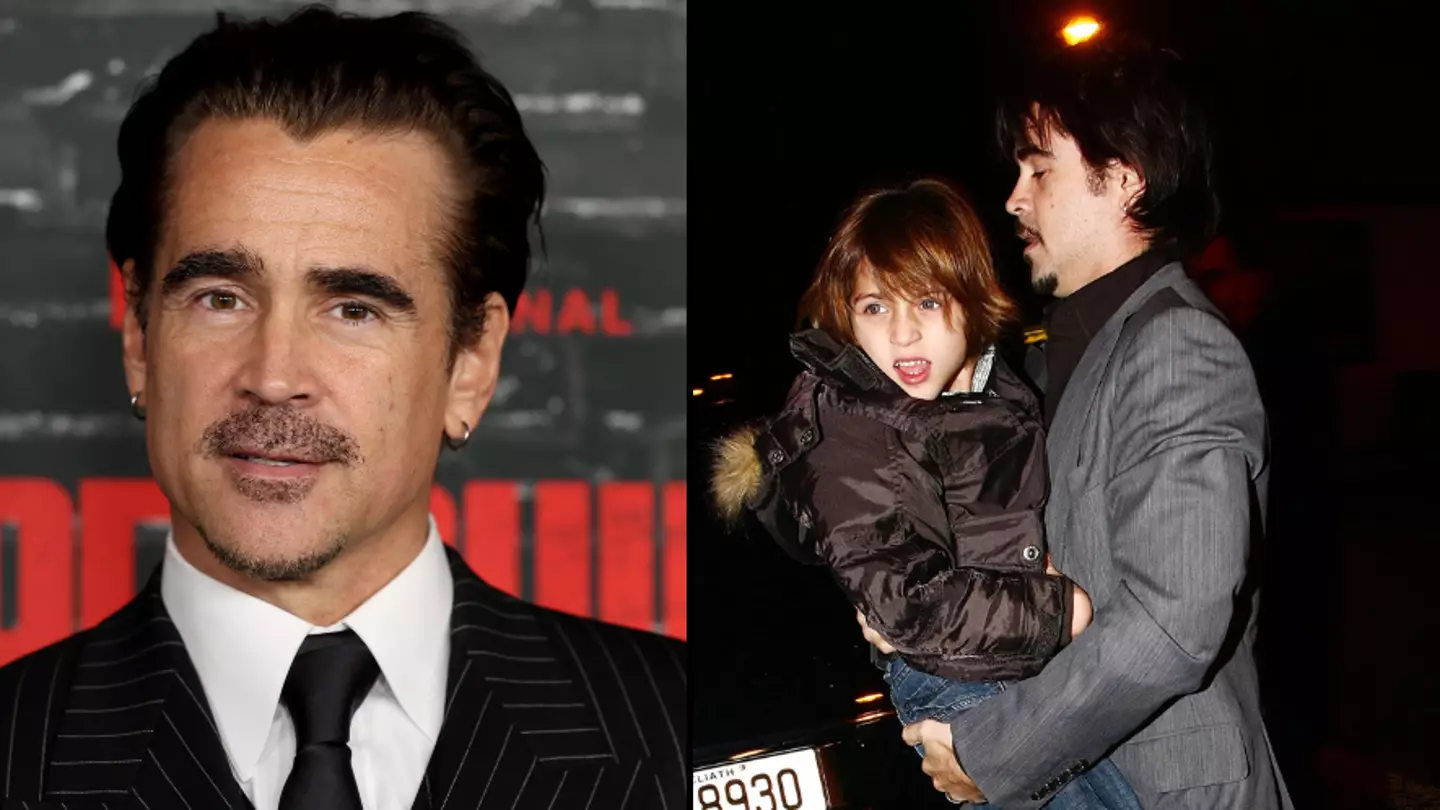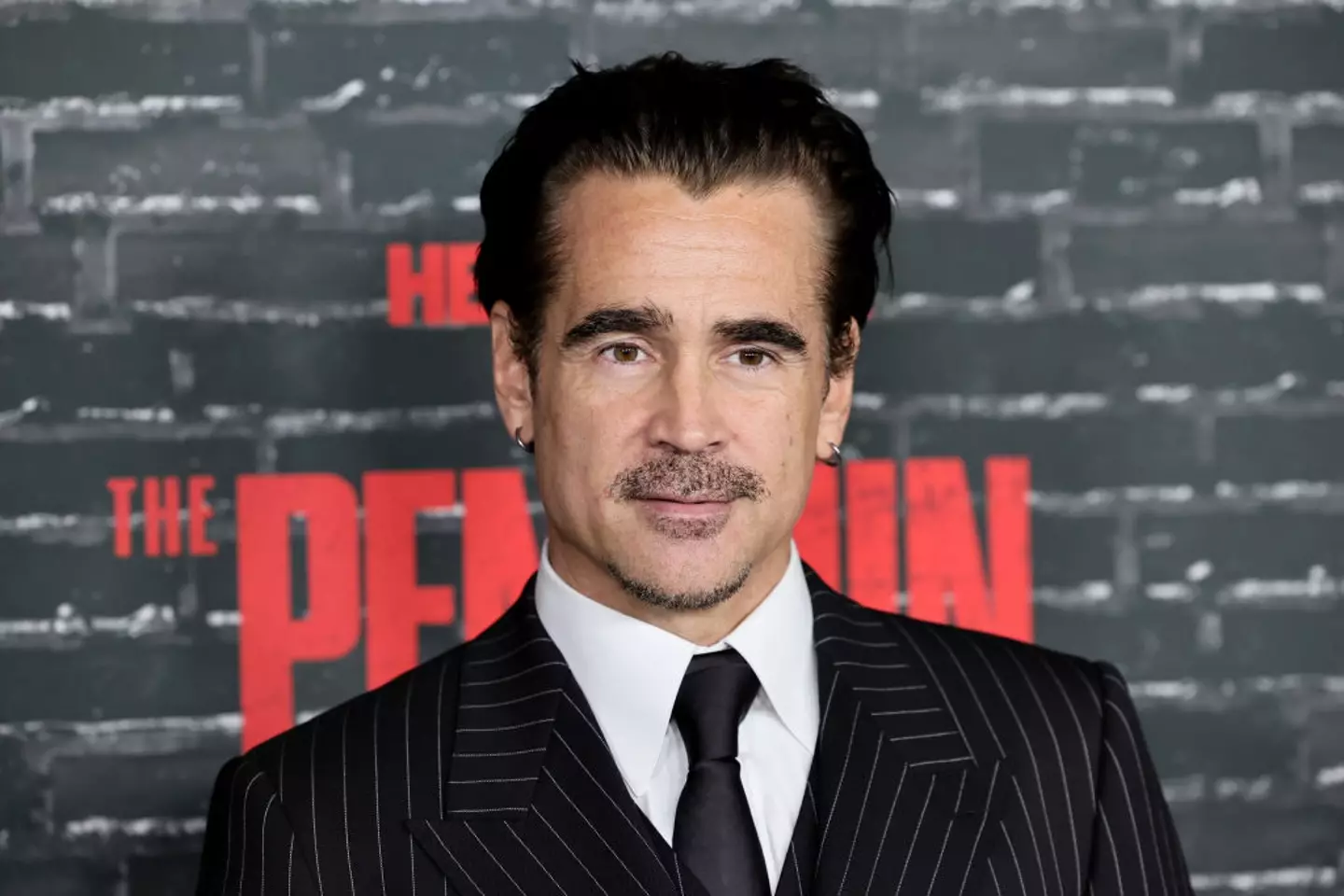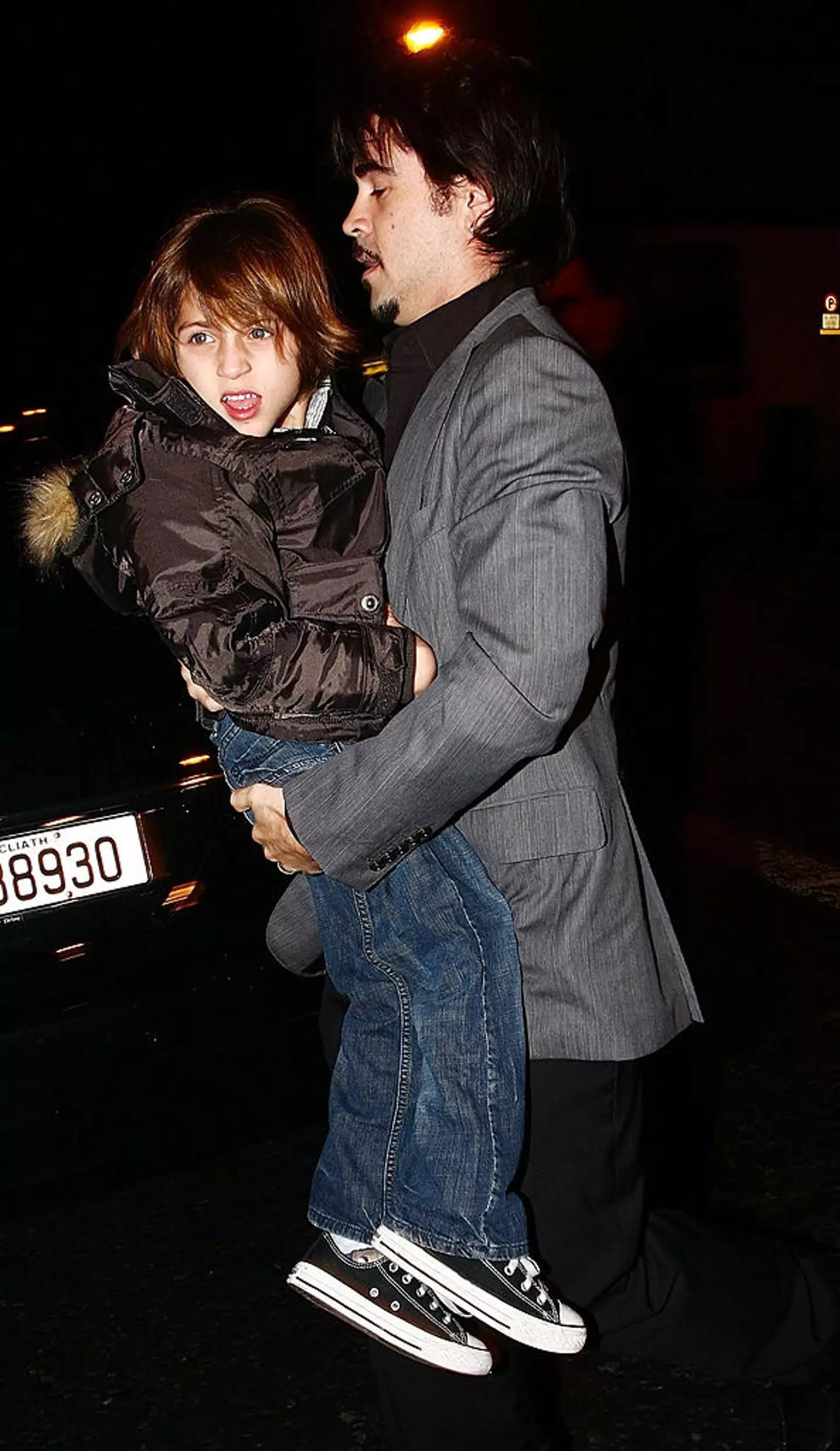
The Banshees of Inisherin star Colin Farrell has opened up about his relationship with his older son, revealing his Angelman syndrome diagnosis helped get him sober.
Farrell, 48, who is currently starring in HBO’s popular spin-off series The Penguin, is the proud father of two sons. He shares eldest child James Padraig Farrell, 21, with his ex partner Kim Bordenave and younger son Henry, 15, with actress and Ondine co-star Alicja Bachleda-Curuś.
The actor has been open about James’ Angelman syndrome diagnosis over the years, with a new interview with MailOnline seeing the actor revealing how being a father helped him deal with alcohol and drug issues.

Colin Farrell revealed how becoming a father helped him get sober (Theo Wargo/Getty Images)
Farrell revealed that he’d been drinking as much as ‘three bottles of Jack Daniels, 12 bottles of red wine and 60 pints of beer per week’ as well as using ‘other substances’ at one point in his life, but cleaned up his act after his eldest son was born.
“James was two when I got sober,” he explained in the interview, adding that his son’s health issues were ‘part of the fuel’ which helped him get off alcohol and drugs.
“One of the things James taught me was to access within myself a desire to live, even if it was initially more about me thinking I wanted to live to be around for him,” he added.
What is Angelman syndrome?
Named after British paediatrician Harry Angelman, who is responsible for discovering the condition, Angelman syndrome is a genetic mutation which causes developmental delays, intellectual disabilities, seizures as well as a happy and excitable personality.

Colin Farrell photographed with his son James in 2009 (Phillip Massey/FilmMagic)
The actor touched on what’s next for James now he’s reached the age of 21, revealing that he and Bordenave have made the decision to have him life under the care of professionals.
Explaining how the couple came to this decision, Farrell revealed that he and Bordenave had been motivated by a fear of James becoming a ‘ward of the state’ should they both pass away before appropriate care is organised.
“He knows when somebody wants to be with him and when somebody’s just supposed to be with him. So if he has a carer or a teacher or a therapist and they’re not fully engaged he’ll just switch off,” he said of James.
“We want him to find somewhere he can have a full and happy life.
Responding to concerns about the adjustment James will face living away from his parents, Farrell added: “I know my son… He’s ready to get out of the house and go and have a bigger life than we can afford him, by having a sense of community he feels connected to.”


